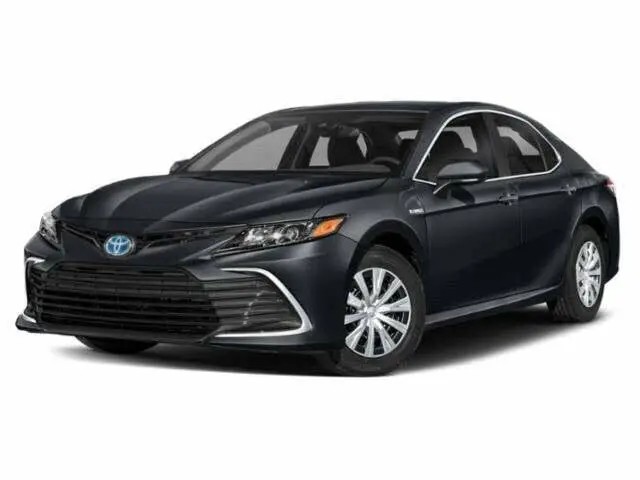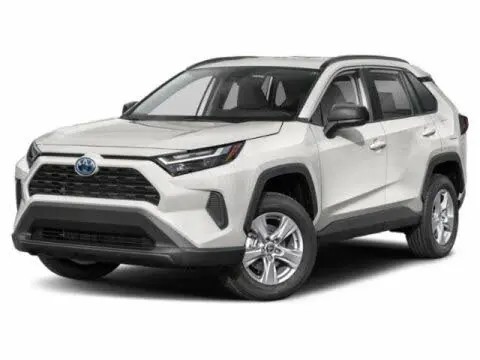In an era where environmental consciousness and economic prudence go hand in hand, the quest for fuel-efficient vehicles has never been more pertinent. As concerns about carbon footprints escalate and fuel costs fluctuate, choosing a car that sips fuel rather than guzzles it is not just a smart financial move—it’s a step towards responsible living. This article delves into the realm of fuel efficiency, spotlighting the top contenders for the best gas mileage cars in 2024. We’ll navigate through various vehicle categories, from compact cars to SUVs, highlighting models that excel in fuel economy, affordability, and features that cater to the environmentally and budget-conscious driver.
Decoding Fuel Efficiency: MPG Explained
Fuel efficiency is fundamentally about how effectively a vehicle converts fuel energy into motion. It’s commonly quantified as miles per gallon (MPG) in the US, indicating how many miles a car can travel on one gallon of gasoline. A higher MPG figure translates directly to better fuel efficiency, meaning the vehicle consumes less fuel to cover the same distance. Understanding MPG is crucial for anyone looking to minimize trips to the gas station and reduce their environmental impact.
Why Gas Mileage Matters: More Than Just Savings
The significance of gas mileage extends beyond just saving money at the pump. Excellent gas mileage is a powerful tool in mitigating environmental impact. Vehicles with superior MPG ratings emit less carbon dioxide, contributing to cleaner air and a healthier planet. In a world grappling with climate change, opting for a fuel-efficient car is a tangible way to reduce your carbon footprint. Moreover, with the volatility of fuel prices, owning a car with great gas mileage offers financial predictability and shields you from unexpected spikes at the pump.
The Science of MPG: How Fuel Efficiency is Measured
Fuel efficiency ratings aren’t arbitrary numbers; they are the result of rigorous, standardized testing designed to simulate real-world driving conditions. These tests, conducted by agencies like the Environmental Protection Agency (EPA) in the United States, assess fuel consumption under both city and highway driving scenarios to provide a composite MPG rating. This standardized approach ensures consistency and allows consumers to reliably compare the fuel efficiency of different vehicles.
Beyond the vehicle itself, driving habits and maintenance play pivotal roles in achieving optimal fuel efficiency. Aggressive driving behaviors, such as rapid acceleration and hard braking, can drastically reduce MPG. Conversely, smooth acceleration, maintaining a consistent speed, and anticipating traffic flow can significantly improve fuel economy. Regular vehicle maintenance, including timely tune-ups, proper tire inflation, and using the manufacturer-recommended motor oil, are also essential for maximizing fuel efficiency. By adopting mindful driving practices and staying on top of maintenance, you can unlock the full fuel-saving potential of your vehicle and contribute to a more sustainable driving experience.
Key Factors Influencing Fuel Efficiency in Cars
Choosing a fuel-efficient car involves considering several interconnected factors. Understanding these elements empowers you to make a well-informed decision tailored to your specific needs and driving style.
Size and Vehicle Type: The Efficiency Scale
Vehicle size and type have a direct correlation with fuel efficiency. As a general rule, smaller, lighter vehicles are inherently more fuel-efficient than their larger, heavier counterparts. If your typical driving needs involve solo commutes or carrying just one or two passengers, a compact car or a hybrid model is often the most economical choice. However, if you require more passenger space, cargo capacity, or towing capability, a midsize car or a fuel-efficient SUV equipped with advanced fuel-saving technologies might be more suitable.
Engine Technology: The Heart of Efficiency
The engine type and the technology it employs are critical determinants of a car’s fuel efficiency. Hybrid and electric vehicles (EVs) have revolutionized fuel economy by integrating electric powertrains with gasoline engines, or eliminating the gasoline engine altogether. Advancements in traditional internal combustion engines (ICE) have also yielded significant improvements in fuel efficiency. Technologies like turbocharging, direct fuel injection, and variable valve timing optimize engine performance and fuel combustion, leading to better MPG figures even in non-hybrid vehicles.
Driving Style and Conditions: The Human Element
Your driving habits and the conditions you typically encounter on the road have a substantial impact on fuel efficiency. Smooth, gradual acceleration and deceleration, maintaining a steady speed, and avoiding abrupt stops are all conducive to better gas mileage. Conversely, aggressive driving, characterized by speeding, rapid acceleration, and harsh braking, consumes more fuel. Similarly, driving in stop-and-go traffic or navigating hilly terrain can negatively affect fuel economy. Being mindful of your driving style and considering your usual driving environment will help you select a car that can deliver optimal fuel efficiency in your daily driving.
Aerodynamics also plays a significant role in fuel efficiency. A car’s shape and design influence how it moves through the air. Sleek, streamlined designs reduce air resistance, allowing the car to move forward more easily and consume less fuel. Car manufacturers invest heavily in aerodynamic testing to refine vehicle shapes and minimize drag, ultimately enhancing fuel economy.
Vehicle weight is another crucial factor. Heavier cars require more energy to accelerate and maintain speed, leading to increased fuel consumption. Automakers are constantly innovating with lightweight materials like aluminum and carbon fiber to reduce vehicle weight without compromising safety or structural integrity. Lower vehicle weight directly translates to improved fuel efficiency.
 Honda Civic Fuel Efficiency
Honda Civic Fuel Efficiency
The Trajectory of Fuel Efficiency: Looking Ahead
The automotive industry is in constant flux, driven by the relentless pursuit of enhanced fuel efficiency and reduced emissions. Several key trends are shaping the future of how cars sip fuel.
The future of fuel efficiency is bright, with technological advancements paving the way for even more economical vehicles. Automakers are not only refining gasoline engines but also aggressively exploring alternative fuels like hydrogen fuel cells and advanced biofuels. These innovations promise to lessen our reliance on fossil fuels and usher in a more sustainable era of transportation.
Technological Leaps in Fuel Efficiency
Automakers are continually innovating and integrating new technologies to push the boundaries of fuel efficiency. This includes advancements in engine design, lighter and stronger materials, more aerodynamic vehicle shapes, and the increasing adoption of electric and hybrid powertrains. Future car models are expected to feature even more sophisticated systems that further optimize fuel economy.
Beyond technology, consumer behavior is a critical piece of the fuel efficiency puzzle. Educating drivers about eco-conscious driving habits and the advantages of fuel-efficient vehicles can lead to a significant reduction in overall fuel consumption and emissions. Simple changes in driving habits, such as maintaining proper tire inflation, adhering to regular maintenance schedules, and avoiding aggressive driving, can collectively make a substantial difference.
The Role of Regulations and Standards
Government regulations and stringent emissions standards are powerful catalysts in driving fuel efficiency improvements. Regulatory bodies worldwide are imposing increasingly strict emissions targets, compelling automakers to develop cleaner and more fuel-efficient vehicles. These regulations will continue to shape the automotive landscape and influence the types of vehicles available to consumers.
International collaborations and agreements on environmental protection are also playing a vital role. Countries are uniting to set ambitious goals for reducing greenhouse gas emissions from vehicles. This global cooperation underscores the critical importance of fuel efficiency in combating climate change and building a more sustainable future for generations to come.
Top 11 Cars with the Best Gas Mileage in 2024
Let’s now explore the top contenders for the best gas mileage cars in 2024. We’ve categorized them into compact cars, midsize cars, and SUVs to help you find the best fit for your needs.
Compact Cars Leading in Fuel Efficiency
Toyota Prius: Synonymous with fuel efficiency, the Prius remains a top pick for drivers prioritizing MPG. The Toyota Prius, a hybrid pioneer, is celebrated for its exceptional gas mileage, comfortable interior, and suitability for both city driving and long journeys.
 Toyota Prius Best Mileage
Toyota Prius Best Mileage
Honda Civic: Known for its refined engine and aerodynamic profile, the Civic delivers impressive fuel economy in a stylish package. The Honda Civic combines sporty aesthetics with fuel efficiency, thanks to its aerodynamic design and efficient engine, making it a dependable choice for daily commutes and weekend excursions.
Hyundai Ioniq: The Ioniq offers hybrid and electric powertrain options, delivering exceptional fuel economy and a comfortable, spacious cabin. As a hybrid leader, the Hyundai Ioniq provides outstanding gas mileage, a smooth ride, and a roomy interior, appealing to eco-conscious drivers who value comfort and efficiency.
Volkswagen Golf: Equipped with a turbocharged engine and a sleek design, the Golf balances performance and fuel efficiency. The Volkswagen Golf, with its turbocharged engine, offers a dynamic driving experience while maintaining impressive gas mileage, making it a versatile blend of power and economy.
Mazda 3: The Mazda3 stands out for its combination of impressive fuel efficiency, elegant design, and engaging driving dynamics.
Midsize Cars with Exceptional Gas Mileage
Toyota Camry Hybrid: The Camry Hybrid is renowned for its outstanding fuel economy, blending power and efficiency in a sophisticated sedan. In the midsize segment, the Toyota Camry Hybrid is a fuel efficiency champion. Its hybrid powertrain delivers an ideal balance of power and economy, complemented by a sleek and stylish design.
Kia K5 Hybrid: The Kia K5 Hybrid, previously known as the Optima Hybrid, offers a compelling mix of fuel efficiency, comfort, and modern features. The Kia K5 Hybrid provides impressive fuel economy without sacrificing style or comfort, making it an excellent choice for eco-minded drivers. It delivers a smooth and efficient driving experience for both daily commutes and long road trips.
Honda Accord Hybrid: The Honda Accord Hybrid is a standout in the midsize category, merging hybrid efficiency with the practicality and comfort of a traditional sedan. With its advanced hybrid system, the Accord Hybrid offers excellent fuel economy, providing the best of both worlds: electric power for shorter trips and a gasoline engine for extended journeys. Its spacious, well-equipped interior and modern technology features make it a smart and eco-friendly midsize car choice.
SUVs with Impressive Fuel Mileage
Ford Escape Hybrid: The Escape Hybrid combines SUV versatility and practicality with excellent fuel efficiency. The Ford Escape Hybrid is perfect for those needing SUV space and utility without compromising on fuel economy. Its hybrid powertrain offers impressive gas mileage, making it an eco-friendly option for families and adventurers.
Toyota RAV4 Hybrid: The RAV4 Hybrid delivers exceptional fuel efficiency without sacrificing functionality or style, making it a top choice in the SUV category. The Toyota RAV4 Hybrid is a standout SUV, offering remarkable fuel efficiency without compromising performance or style. Its hybrid powertrain provides impressive gas mileage, making it practical for daily driving and weekend getaways. Its spacious interior and rugged design make it adventure-ready while keeping fuel costs low.
Lexus UX Hybrid: This luxury compact SUV provides a refined balance of fuel efficiency, comfort, and upscale features. For those seeking a luxurious and fuel-efficient SUV, the Lexus UX Hybrid is an ideal choice. Its hybrid powertrain provides impressive gas mileage, allowing for a smooth and comfortable ride with minimal environmental impact. Its elegant design and premium features embody luxury and efficiency.
 Toyota RAV4 Hybrid Fuel Efficiency
Toyota RAV4 Hybrid Fuel Efficiency
Maximizing Your Fuel-Efficient Car’s Potential
Owning a fuel-efficient car is a great start, but maximizing its benefits requires adopting fuel-conscious habits and practices. To further enhance your savings and minimize your environmental impact, consider these tips:
Investing in a fuel-efficient car is a financially and environmentally sound decision. By choosing a high gas mileage vehicle, you contribute to reducing greenhouse gas emissions and promote sustainability in the automotive industry. Fuel-efficient cars are designed to minimize fuel consumption, saving you money on gas and conserving natural resources.
Essential Maintenance for Optimal MPG
Regular maintenance is key to maintaining and even improving your car’s fuel efficiency. Ensure your tires are properly inflated to the recommended pressure, schedule regular oil changes using the manufacturer-recommended grade, and adhere to the recommended service schedule. Replacing air filters regularly and ensuring your engine is properly tuned also contribute to better fuel economy.
Monitoring your driving habits is also crucial for maintaining fuel efficiency. Aggressive driving, such as speeding and rapid acceleration, significantly reduces gas mileage. Smooth driving habits and consistent maintenance are vital for maximizing your fuel-efficient car’s potential.
Driving Techniques to Boost Fuel Efficiency
Adopting fuel-saving driving techniques can further improve your vehicle’s gas mileage. Minimize idling time, especially in modern cars where restarting the engine consumes less fuel than idling for extended periods. Utilize cruise control on highways to maintain a steady speed and avoid unnecessary acceleration and deceleration. Reduce the use of air conditioning and other power-consuming accessories when possible, as they can increase fuel consumption. Plan your routes efficiently and combine errands into single trips to minimize driving distance and fuel use.
Reducing unnecessary weight in your vehicle also helps improve fuel efficiency. Remove any items you don’t need from your car, as lighter vehicles require less fuel to operate. Maintaining a steady speed and anticipating traffic flow to avoid sudden acceleration and braking are also effective techniques for optimizing fuel economy.
Conclusion: Choosing the Best Mileage Car for Your Needs
In conclusion, the top cars with the best gas mileage for 2024 offer a diverse range of options across different vehicle categories. Whether you prioritize a compact car, a midsize sedan, or an SUV, there are vehicles designed to maximize fuel efficiency without compromising on performance or essential features. When selecting the best gas mileage car for you, carefully consider your specific needs, driving preferences, and budget. Choosing a fuel-efficient vehicle is an investment that benefits your wallet and contributes to a cleaner, more sustainable future for all.
